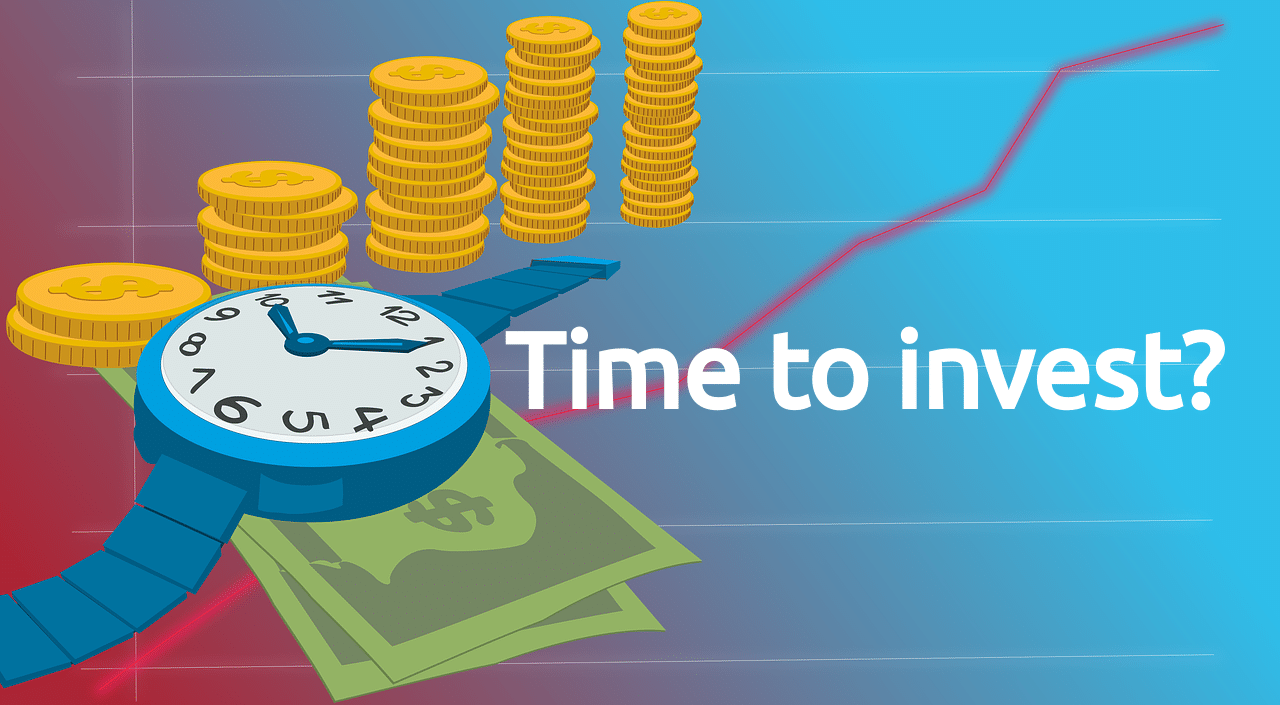Are you looking for legit investment opportunities with monthly returns in Nigeria?, Investing is such a wise thing to do considering how the economy is going especially in our country.
There are several ways and platforms for making money in Nigeria but in this article, we are going to discuss the general information on investment options with monthly returns.
Investment with Monthly Returns in Nigeria
Although this is not a financial advisor, the following investment approach can earn you money monthly.
1. Fixed Deposits
The Fixed deposits are a well-liked investment choice in Nigeria since they offer monthly returns. Fixed deposits are available from banks and other financial institutions with a range of interest rates and terms.
In a Fixed Deposit, you are required to stock a large sum in your bank for a fixed tenure at an agreed rate of interest. At the end of the tenure, you receive the amount you have invested plus compound interest. FDs are also called term deposits. Interest rates.
The interest rate rises as the tenure lengthens.
2. Treasury Bills
Treasury Bills, also known as T-Bills, are government-backed, short-term securities issued by the CBN. They are issued when the government needs to borrow funds for a period of time.
They have a maximum maturity of 364 days. T-Bills are sold at a discount from their face value. Although similar to a short-term bond, t-bills are different and offer low yields compared to high-risk investments.
Let’s say for example, If an investor decides to buy a T-Bill for ₦100,000 with a discount rate of 10%, the investor will only pay ₦90,000 and will be paid the face value of ₦100,000 at the maturity date.
Basically, treasury bills interest is the difference between the face value and the discounted sales price. Also, unlike bonds, there are no interest payments during the investment period.
One major challenge with treasury bills is that it offers low returns
3. Mutual Funds
A Mutual Fund is an investment vehicle made up of a pool of funds collected from numerous investors for the purpose of investing in securities such as stocks, bonds, money market instruments and similar assets.
These institutions invest in a range of products, such as stocks, bonds, and money market instruments, by pooling money from several individuals.
In Nigeria, some mutual funds pay their investors dividends every month.
Benefits of Mutual Fund Investment
- Diversification
- Professional Management
- Regulations
- Affordability
- Liquidity
- Transparency
Conclusively, mutual funds are largely a safe investment that can give you monthly returns
4. Real Estate Investment Trusts (REITs):
REITs are financial instruments that invest in real estate with income-producing potential. In Nigeria, certain REITs pay dividends every month.
REITs issue shares that trade stock exchange and are bought and sold like ordinary stocks. In order to be considered a REIT, the company must invest at least 75% of its assets in real estate and derive at least 75% of its revenues from real estate-related activities.
5. Stocks
Investing in Stocks simply means owning part of shares in a public company.
If a stock you own becomes more valuable, you could earn a profit if you decide to sell it to another investor.
While stocks are not known for providing monthly returns, some companies in Nigeria pay monthly dividends to their shareholders.
6. Money Market Funds
Money market funds invest in low-risk fixed-income securities, such as treasury bills, commercial papers, and certificates of deposits. They offer stable returns and can provide monthly dividends to investors.
7. Agriculture Investment
Agriculture investment companies in Nigeria offer opportunities for investors to invest in farming, livestock, or fisheries with a promise of monthly returns.
According to Statista, Nigeria has an arable land area of 34 million hectares: 6.5 million hectares for permanent crops, and 28.6 million hectares for meadows and pastures.
Agriculture accounts for about 23 percent of Nigeria’s GDP. The country is a leader in various types of agricultural production, such as palm oil, cocoa beans, pineapple, and sorghum.
It is the largest producer of sorghum in the world just after the United States, and ranks fifth in the production of palm oil and cocoa beans.
Nigeria is also a large global exporter in this sector. Oil, fruits, nuts, and seeds are among the ten best performing
8. Peer-to-Peer Lending
Peer-to-peer lending platforms connect borrowers with investors. Investors can earn monthly returns by lending money to borrowers at a fixed interest rate.
9. Forex Trading
Forex trading involves buying and selling foreign currencies to make a profit. Some forex traders offer monthly returns to their investors.
According to Forex Academy, a general monthly return of 5% to 10% is considered good in forex trading. However, this return can be higher or lower depending on the trader’s strategy, risk management, and market conditions
10. Cryptocurrencies
Cryptocurrencies are digital currencies that are traded on online platforms. Some cryptocurrencies provide monthly returns through staking or mining.
It is important to note that all investments carry risks, and investors should conduct thorough research and seek professional advice before investing their money in crypto.
Where to Invest Money in Nigeria
Investment options in Nigeria vary depending on the level of risk you are willing to take, as well as your investment goals and the amount of capital you have available. Here are some popular investment options in Nigeria:
1. Stock market: Investing in stocks of publicly listed companies is a popular way to invest in Nigeria. The Nigerian Stock Exchange (NSE) is one of the largest stock exchanges in Africa, and it provides opportunities for investors to invest in various sectors of the Nigerian economy.
2. Real estate: Real estate is another popular investment option in Nigeria. You can invest in residential, commercial, or industrial properties, and the returns on investment can be significant.
3. Agriculture: Nigeria has a vast agricultural sector, and investing in agriculture can be profitable. You can invest in large-scale farming, agro-processing, or food production.
4. Fixed-income securities: Fixed-income securities such as treasury bills and bonds provide a low-risk investment option. The returns on investment may not be as high as other investment options, but they offer a reliable income stream.
5. Cryptocurrency: Cryptocurrency is a relatively new investment option in Nigeria. Bitcoin, Ethereum, and other cryptocurrencies have been gaining popularity in Nigeria, and some people have made significant profits investing in them.
It is always advisable to consult with a financial advisor or investment expert before making any investment decisions.
- Read Also: Lear Capital Investment Overview
Bank Investment With Monthly Returns
Several types of bank investments offer monthly returns. Some examples include:
1. Fixed Deposit (FD): FDs are a popular investment option that provides guaranteed returns. The interest rate on FDs is fixed at the time of investment and remains the same throughout the investment tenure. The returns on FDs can be received monthly or at maturity.
2. Recurring Deposit (RD): RDs are similar to FDs, but instead of investing a lump sum amount, you invest a fixed amount every month. The interest rate on RDs is fixed at the time of investment and remains the same throughout the investment tenure. The returns on RDs can be received monthly or at maturity.
3. Monthly Income Scheme (MIS): MIS is a type of investment offered by post offices and some banks. It provides regular monthly income in the form of interest. The interest rate on MIS is fixed and varies from bank to bank.
4. Senior Citizen Savings Scheme (SCSS): SCSS is a type of investment available to senior citizens. It provides a regular monthly income in the form of interest. The interest rate on SCSS is fixed and is higher than most other fixed-income investments.
Before investing in any of these options, it’s important to consider factors such as the investment amount, tenure, interest rate, and liquidity requirements. It’s also advisable to consult a financial advisor to help you make an informed decision.
Investment Opportunities For Low-income Earners in Nigeria
There are several investment opportunities available for low-income earners in Nigeria. Here are some options:
1. Mutual Funds: Mutual funds are a good investment option for low-income earners in Nigeria. These are investment funds that pool money from several investors and invest it in a diversified portfolio of stocks, bonds, or other securities.
Mutual funds in Nigeria have relatively low minimum investment requirements, making them accessible to low-income earners.
2. Treasury Bills: Treasury bills are a low-risk investment option offered by the Nigerian government. These are short-term debt instruments that offer a fixed return on investment.
The minimum investment amount is relatively low, making it a good option for low-income earners.
3. Agriculture: Agriculture is a sector that provides several investment opportunities for low-income earners in Nigeria.
There are opportunities in farming, livestock production, and agribusiness. Low-income earners can participate in agriculture by investing in small-scale farms or investing in agribusiness companies.
4. Real Estate: Real estate is a long-term investment option that can provide stable returns. Low-income earners can invest in real estate by buying land or properties in developing areas and selling them later at a profit.
5. Small Business: Starting a small business is another investment option for low-income earners in Nigeria. With the right idea and planning, a small business can provide a steady income stream and can be a stepping stone to financial independence
- Read Also: Best Forex Trading Academy
Conclusion: Investment with Monthly Returns in Nigeria
It is important to note that investing always carries some degree of risk, so it’s important to do your research and seek professional advice before making any investment decisions

Legacy Benjamin is a serial SEO content writer with a half-decade of experience in the field of blogging. He is also a skilled business consultant, providing valuable insights to companies and individuals seeking growth and success. His expertise lies in crafting compelling and engaging content that captivates audiences and drives business results. For business deals, contact him



Invaluable efforts and business insights. Kudos to Legacy tips.